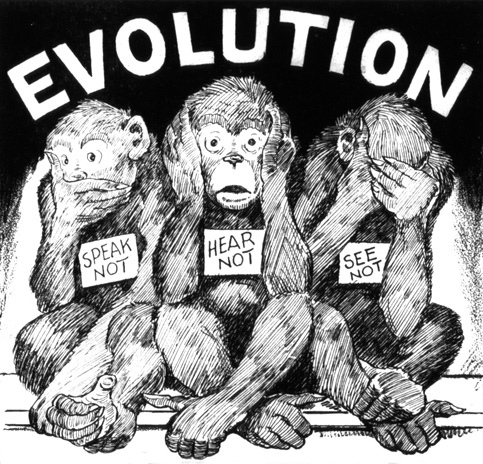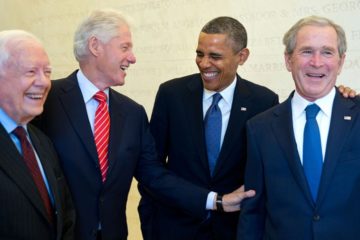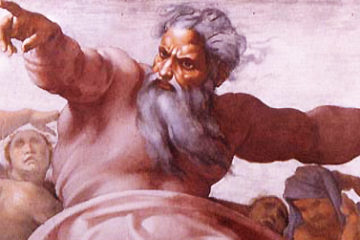Evolution VS Morality

Perhaps you will remember learning in school about the famed 1925 circus of a court proceeding commonly referred to as the “Scopes Monkey Trial.” I believe it is the most famous trial in American history regarding whether or not Charles Darwin’s theory of evolution should be taught in public school science classes.
The conflict originated in the fact that Christianity already had a pre-existing origin story for where human life came from. Many people believed that this Christian origin story was fundamental to the worldview and moral framework that produced Western Civilization and the concepts of universal human rights, natural rights, and individual liberty.
To say that these things – what people felt was at stake – are important is an understatement.
Here is how the famed anti-evolution-in-public-schools prosecutor, Williams Jennings Bryan summarized his concern at the end of the trial:
Science is a magnificent force, but it is not a teacher of morals. It can perfect machinery, but it adds no moral restraints to protect society from the misuse of the machine. It can also build gigantic intellectual ships, but it constructs no moral rudders for the control of storm-tossed human vessel. It not only fails to supply the spiritual element needed but some of its unproven hypotheses rob the ship of its compass and thus endanger its cargo. In war, science has proven itself an evil genius; it has made war more terrible than it ever was before. Man used to be content to slaughter his fellowmen on a single plane, the earth’s surface. Science has taught him to go down into the water and shoot up from below and to go up into the clouds and shoot down from above, thus making the battlefield three times as bloody as it was before; but science does not teach brotherly love. Science has made war so hellish that civilization was about to commit suicide; and now we are told that newly discovered instruments of destruction will make the cruelties of the late war seem trivial in comparison with the cruelties of wars that may come in the future. If civilization is to be saved from the wreckage threatened by intelligence not consecrated by love, it must be saved by the moral code of the meek and lowly Nazarene. His teachings, and His teachings alone, can solve the problems that vex the heart and perplex the world.
In short, Bryan’s concern and the concern of many at the time, was not about science at all. His concern for one thing, is that if we lose the belief rooted in the Christian origin story that every human being has incredible inherent worth and value simply because they are beings created in the image of God, they are unique image bearers of God, with the Spirit of God, the breath of God breathed into them – then we will lose our moral underpinnings and our higher ideals and find it all the easier to treat our fellow human beings with indifference and disregard. Absent of those beliefs and ideals, a materialist worldview and the rule of power is all that would remain.
This concern reminds me of one of the warnings George Washington left for us in his 1796 Farewell Address:*
Of all the dispositions and habits which lead to political prosperity, religion and morality are indispensable supports. In vain would that man claim the tribute of patriotism, who should labor to subvert these great pillars of human happiness, these firmest props of the duties of men and citizens. The mere politician, equally with the pious man, ought to respect and to cherish them. A volume could not trace all their connections with private and public felicity. Let it simply be asked: Where is the security for property, for reputation, for life, if the sense of religious obligation desert the oaths which are the instruments of investigation in courts of justice? And let us with caution indulge the supposition that morality can be maintained without religion. Whatever may be conceded to the influence of refined education on minds of peculiar structure, reason and experience both forbid us to expect that national morality can prevail in exclusion of religious principle. It is substantially true that virtue or morality is a necessary spring of popular government. The rule, indeed, extends with more or less force to every species of free government. Who that is a sincere friend to it can look with indifference upon attempts to shake the foundation of the fabric?
Today I find myself quite grateful for the struggles that have come before us. I find that far more people today are willing and able to give both religion and science primacy in their respected domains, letting science explore and explain the what and the how, while letting religion explore and explain the why and even the Who behind the how and the what.
Science and religion can form a wonderful team, when we allow them to.
*I highly recommend reading Washington’s Farewell Address in its entirety. The last half of the speech is a list of our founding president’s warnings regarding things that could lead to our country’s demise. Looking back through our history, it unfortunately appears that instead of guarding against the things he warned us of, we have pursued them like a to-do list.
You may also be interested in:


